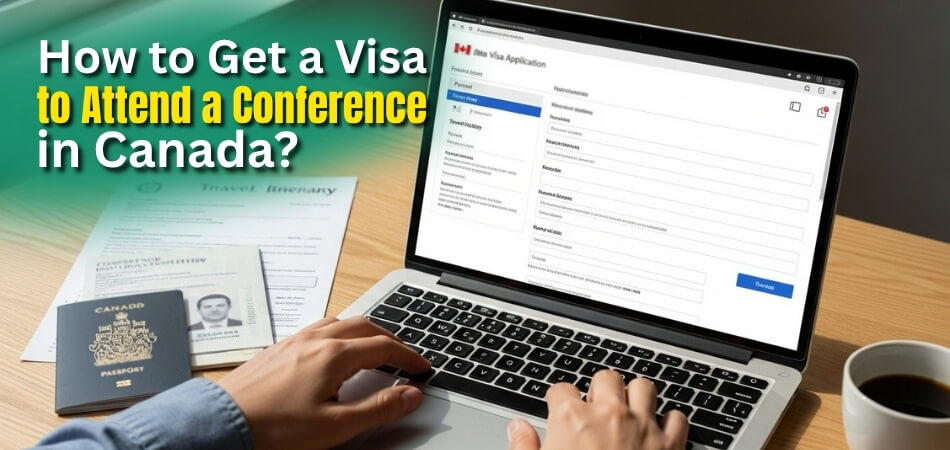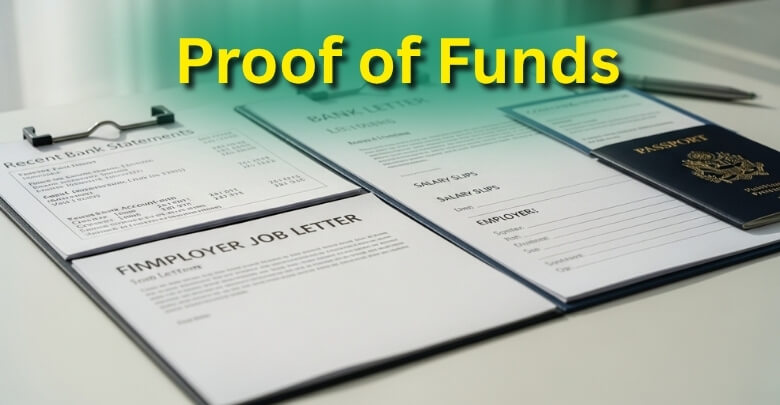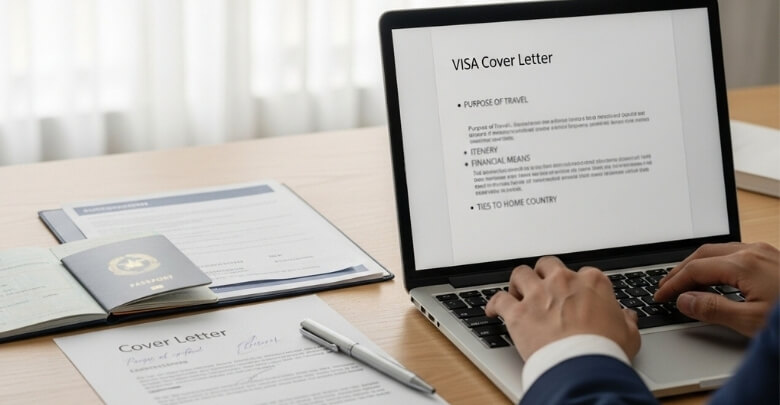Attending a conference in Canada can be an exciting opportunity to learn, share ideas, and build valuable connections. Before you can participate, though, you’ll need the right visa to enter the country. Many people wonder, How to get a visa to attend a conference in Canada?
Start by checking whether you need a Temporary Resident Visa (TRV) or an Electronic Travel Authorization (eTA). Then, prepare your documents: passport, invitation letter, travel plan, and bank proof. Apply online on the official Canada visa website, pay the fee, and give fingerprints if asked.
Be sure to apply early and wait for approval before booking your tickets. Read on for the full step-by-step guide!
How to Get a Visa to Attend a Conference in Canada?
Joining a conference in Canada can open new doors for your career and personal growth. The process of getting a visa becomes smoother when you know each step clearly. With the right preparation, you can attend stress-free and focus on your event.
Step 1: Check Visa Requirements
- Use the IRCC tool online. It tells you if you need a TRV or an eTA before applying.
- People from the U.S. often don’t need a TRV or eTA. That makes travel a lot easier.
- If you’re from another country, check the rules first. Knowing early saves time and avoids mistakes later.
Step 2: Gather Required Documents
- You need a passport, travel plan, hotel proof, and conference papers. These show why you are visiting.
- Add money proof like bank slips or sponsor notes. They show you can pay for the trip.
- Include work or family papers from home. These show you will return after the conference ends.
Step 3: Apply Online Through the IRCC Portal
- Make an account on the IRCC site and fill out the form. Upload your files carefully and check twice.
- Pay the fee for TRV or eTA. Keep the receipt safe because you may need it later.
- Save a copy of your form and files. Keeping them gives you proof if questions come up later.
Step 4: Biometrics and Interview Steps
- Some people must give biometrics like photos and fingerprints. This depends on where you are applying from.
- Others may need to attend an interview. Speak clearly and honestly so officers understand your travel plans.
- Book your appointment quickly. Doing it early keeps the process smooth and avoids sudden problems later on.
Step 5: Processing and Approval Timeline
- Visa times differ by country. Apply early so you don’t stress if delays happen close to travel.
- A TRV goes into your passport. An eTA comes by email and links to your passport.
- Always start months before travel. This way, you have time to plan and avoid last-minute problems.
Step 6: Conference Invitation Support
- Some conferences help with visa papers or special codes. These papers make your application much stronger.
- Always ask organizers if they provide help. This extra support can save you time and energy.
- For example, a Canada conference with invitation letter shows proof. It makes your case clear to the visa officer.
Step 7: Important Reminders Before Travel
- Don’t book flight tickets before approval. A travel plan or reservation is enough for your application.
- Be honest in every answer you give. Clear and true information helps avoid problems and refusals later.
- Check your IRCC account often. Updates come there, and knowing them early helps you stay ready.
What Documents are Required to Get a Visa for Canadian Conference?
Going to a conference in Canada is exciting, but you must get the right visa first. One key part is preparing all the correct documents. This shows your purpose and helps the visa officer trust your reason to travel. Here are the most important papers you should collect.
- Passport Copy: Make sure your passport is still valid for at least six months. Include a clear copy of the main ID page.
- Invitation Letter: Ask the event organizer for a signed letter with details. This explains why you are going and who invited you.
- Flight Itinerary: A reserved flight plan is enough for the visa form. You do not need to buy real tickets before approval.
- Hotel Booking: Print your hotel booking or proof of stay. This tells them where you will sleep during your time in Canada.
- Bank Statement: Show at least three months of recent bank history. It helps prove you have enough money to cover your trip.
- Cover Letter: Write one page explaining your reason for the trip. Include the conference name, dates, and your work or study.
- Work or Study Proof: Include a letter from your job or school with your role. This shows you have strong reasons to return home.
- Home Country Ties: Add proof like family records or property papers. These help show you plan to come back after the event ends.
- Travel History: Include stamps or past visas if you’ve traveled before. That shows you followed travel rules in other countries as well.
- Photograph: Use a recent passport-size photo with a clear face and white background. Check IRCC rules for photo size and quality.
How Long Does a Canadian Visitor Visa for Conferences Take to Process?
Visa processing time depends on the country and how you apply, so the range can feel different for everyone. The average global visitor visa time is around thirty-one days, though this number may rise during very busy periods. Indian travelers usually face longer waits of about one hundred sixteen days, mostly caused by higher demand and stricter checks. Applying online often helps reduce the waiting time, usually between fifty and fifty-five days for most applicants.
Paper applications generally take longer, often around sixty to sixty-five days, and that delay may cause real frustration. Some programs allow faster service and shorten waiting time to twenty-five or thirty days if you qualify. When applying for a Canada conference visa, make sure all documents are correct because mistakes easily increase the processing period. Seasonal rushes and incomplete files can affect the overall timeline, so plan early and keep everything properly prepared.
What Proof of Funds is Accepted for a Conference Visa Application?
Traveling to Canada for a conference feels exciting and important, but getting the right visa takes proper preparation and planning. A key step in this process is showing that you have enough money for your trip. Officials want to know you can cover flights, food, and stay easily. So, you must show these documents to prove your funds are safe and available for use.
Bank Statements
One of the most common proofs is your recent bank statements. These usually cover three to six months of history. They should clearly show your name, account details, and balance. This helps prove you have steady money to support your visit.
Bank Letter
You can also get a letter from your bank on official letterhead. It should confirm when your account was opened. It also mentions your balance, average funds, and any debts. Having this letter makes your financial picture look clearer and more reliable.
Salary Slips
If you work somewhere, your pay slips help as proof. These show regular income from your job each month. Visa officers like to see that money is coming in. This gives them confidence that you can handle your travel costs.
Job Letter
Your employer can also write a letter for you. It should say your job title, salary, and how long you’ve worked. This makes your income source official. It also shows you have strong ties back home after the conference.
Assets Proof
Some people add fixed deposit papers or investment account summaries. These show savings that can be quickly used for travel. They give extra proof you won’t run out of money. Such assets are often seen as strong support.
Pension Papers
If you receive a pension, you can show pension slips or statements. These act just like salary proof. They show that money comes in regularly. This helps prove you will not struggle while staying in Canada.
Business Records
For self-employed people, business papers work best. Things like business registration, tax returns, and bank statements are needed. They show that you earn through your business. This confirms you can pay for travel costs without problems.
How to Prepare a Strong Cover Letter for My Visa Interview?
Writing a strong cover letter can feel stressful, but clear steps make it simple. The key is showing honesty, confidence, and purpose. When you follow these ways, you’ll create a letter that makes officials trust your application. Here are the main elements you should include to make your cover letter effective.
Clear Introduction
- Begin with your purpose for travel and mention the conference. A short, simple explanation helps start things smoothly.
- Add your travel dates and the place of the event. This information gives them clarity about when you plan to visit.
Personal Details
- Write your full name, passport number, and contact details. These simple details ensure officials identify you without confusion.
- Share your work or study background briefly. This helps them understand your position and why you wish to attend.
Travel Purpose
- Explain that you are traveling only to attend the conference. This makes your intent clear and avoids misunderstandings.
- Give short details of how the event connects with your career. That shows why participation matters for personal growth.
Conference Information
- Mention the name, dates, and location of the conference clearly. This shows you researched details and prepared properly.
- For example, include when you register international conferences in Canada. This makes your reason for travel stronger and believable.
Financial Support
- Explain how you will cover costs like flights, food, and accommodation. This assures them you won’t face problems.
- Mention bank statements, salary slips, or sponsor help. Including such details gives them confidence that you have strong financial backing.
Ties to Home
- Add proof of your family, job, or studies in your country. This shows strong reasons to return.
- Mention property or assets you hold locally. Clear ties help officers believe you don’t plan to overstay in Canada.
Professional Tone
- Keep sentences short and easy to read. This helps your cover letter sound confident and clear without sounding heavy.
- Avoid fancy or confusing language at all times. A clean style shows you are serious, prepared, and trustworthy.
FAQs About Canadian Conference Visa
Attending a Canadian conference is exciting, but the visa process often raises many small questions. To make things easier, here are some common FAQs that give quick, clear answers. These will help you prepare confidently.
Can I Apply Without a Conference Invitation?
Yes, you can start your visa application without an invitation, but approval chances are weaker. A conference invitation proves your purpose, strengthens your file, and makes officers trust your intent to visit Canada for genuine reasons.
Is Travel Insurance Required for the Application?
Travel insurance isn’t a strict requirement for applying, but it’s strongly recommended. It covers medical costs, emergencies, or sudden issues during your stay. Submitting proof of insurance also shows you are prepared responsibly for safe travel while visiting Canada.
Can Students Apply for a Conference Visa?
Yes, students can apply if invited or registered for an academic or professional event. Providing proof of enrollment, financial documents, and an invitation letter is important. Students should also demonstrate strong ties to their home country for higher approval chances.
Do I Need Biometrics for a Conference Visa?
Most applicants must provide biometrics, including fingerprints and a photo, at an authorized center. Biometrics help Canadian authorities confirm your identity. Check IRCC instructions, since requirements differ by country, and book appointments early to avoid processing delays during applications.
Can I Travel With Family Members?
Yes, you may include family members in your application, but each person needs separate documents and fees. Spouses or children must show their own financial support and purpose. Submitting applications together often makes the review process simpler and smoother.
What Happens If My Visa Gets Refused?
If refused, you will receive a refusal letter explaining the reasons. You can reapply after correcting mistakes or adding missing documents. Carefully reviewing feedback, strengthening weak areas, and applying early increases your chance of approval during the second attempt.
Can I Extend My Stay After the Conference?
Yes, extensions are possible if you apply before your visa expires. You must show reasons, financial support, and updated documents. Extensions aren’t guaranteed, but complete applications with strong evidence improve chances of staying longer in Canada legally.
Is A Medical Exam Required for a Conference Visa?
Not everyone needs a medical exam. Requirements depend on your country of residence, length of stay, or health concerns. If requested, you must complete the exam with an approved Canadian physician before officers finalize your visa application decision.
Can I Apply Through a Travel Agency?
Yes, some people use travel agencies for help, but applying directly on the IRCC portal is safer. Agencies can assist with documents, but you remain responsible for accuracy. Always verify that agencies are trusted before sharing sensitive information.
Does Language Proficiency Affect Visa Approval?
No, language test results aren’t required for conference visas. However, clear communication during interviews or documents in English or French helps. Officers want to understand your purpose. Strong letters, simple explanations, and proper translations make your application stronger.
Wrap Up
If you follow each step carefully, getting a visa for a Canada conference is not difficult. Bring the right papers, write a clear cover letter, and always tell the truth. Try not to rush, and apply early to avoid stress later.
If you’re thinking about how to get a visa to attend a conference in Canada, just take it one step at a time. Each part of the process matters, and being ready makes it easier. When you prepare well, you can enjoy your trip and focus on learning new things at the event.








